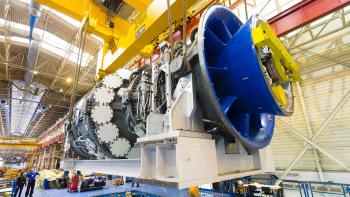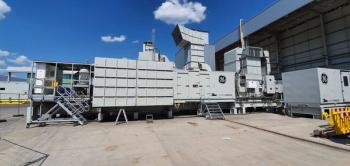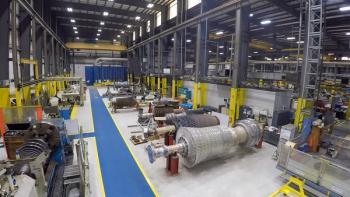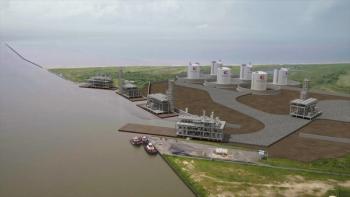
UZMAR Shipyards Orders 4 MAN 175D for Tug Operator, Svitzer
A total of four engines were selected for Svitzer’s TRAnsverse Tug newbuilds.
To reduce its carbon footprint, Svitzer is slowly introducing new, low-emission fuel types into its operations. As such, UZMAR Shipyards in Turkey placed an order for four of MAN Energy Solution’s 12V175D-MM marine propulsion engines for global tug operator, Svitzer, which can run on hydrotreated vegetable oil (HVO). The order consists of two 2,400 kW-rated engines and will provide mechanical propulsion power for the TRAnsverse tugs.
“While always selecting engines that will be dependable in our diverse and often demanding marine-services operations many years into the future, the opportunities for decarbonization are an equally important consideration,” said Kasper Karlsen, Chief Operating Officer at Svitzer. “MAN Energy Solutions is a key provider for us in this context, and we are pleased to be partnering with them for the delivery of engines for our two new TRAnsverse tugs.”
The OEMs production facility, located in Frederikshavn, Denmark, will supply the engines to UZMAR in November and December 2023, while vessel completions are planned for late 2024. From there, the tugs will enter service as part of Svitzer’s Australian fleet.
“This important order provides another clear example of the benefits of having compact 12-cylinder propulsion engines with this amount of power available for harbor tug applications,” said Florian Keiler, Head of High Speed, MAN Energy Solutions. “It also demonstrates the trust that global customers, such as Svitzer and UZMAR, place in MAN Energy Solutions to deliver the highest quality equipment with many significant performance benefits.”
The MAN 175D engine range, which was designed for the maritime sector, is available in three variants of 12-, 16- and 20-cylinders, with an output ranging from 1,500 to 4,400 KW and is optimized for propelling ferries, offshore support ships, tugs, and other working vessels.
The 175D was designed from the outset for low-fuel consumption, coupled with compliance with the latest exhaust-gas-emission standards.
Newsletter
Power your knowledge with the latest in turbine technology, engineering advances, and energy solutions—subscribe to Turbomachinery International today.




